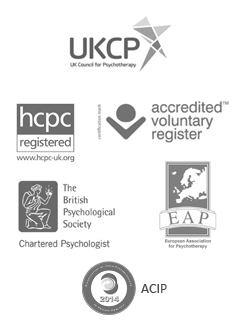Overcoming Shyness
Request a Question of Your Own!
Problem from the Reader
Is it typical to still be excruciatingly quiet at the age of about 40? I live with my two children and don’t have many companions. Some of my coworkers don’t interact with me very much at work, and I tend to stay to myself a bit because I get very anxious when I’m around too many of them at once. I generally stay away from discussions and social gatherings because I occasionally simply lack the ability to engage in small talk, which I even find to be a waste of time. Since I don’t have a social life and am conscious that I frequently come across as nervous, awkward, and stupid, I also find myself to be somewhat boring. On Sunday mornings, I occasionally experience severe depression and anxiety because I am aware that job will resume on Monday.
I also want to begin a relationship with somebody new, but I’m not sure how to go about it. I think I act like a schoolgirl because I feel physically poor. In comparison to my peers, who have well-balanced households and active social lives, I also feel incredibly superior. I frequently wish I could be more like them. Sometimes I feel truly alone. At this point in my life, I simply don’t know what to do with myself, and I notice that I’m becoming more lonely and frustrated. I am aware that I need to get out and interact with people, but I’m not sure where to start or how to do it without coming across as phony, anxious, or terrible. Simply put, I’m at a loss for what to do.
The Psychologist’s Response
To answer your first question, yes, shyness is a common personality trait and is normal, no matter what age. In some cultures, shyness is seen as a positive trait — but because Western culture is very outgoing, it can be difficult to feel as if others experience shyness as well. It’s also very normal to want to have one or two close friends, or to have deeper conversation with one person rather than making small talk with acquaintances. Some individuals find it helpful to know that others are like this, and that a construct called Introversion (from the Myers-Briggs Type Indicator, MBTI) exists. Individuals who score higher on the Introversion (rather than Extraversion) end of the scale often feel drained if they have to interact with many people or make small talk — they tend to get their energy from their own thoughts and ideas and can become easily overwhelmed at parties or other large social gatherings. Some introverted individuals are also very sensitive, and find support in books such as The Highly Sensitive Person by Elaine Aron, PhD.
Try Website Coaching: Get Matched Specifically
( Please read the crucial explanation below. )
You seem to have some effective relationships based on what you’ve said, including having two kids, having some companions, and being able to work in an office setting. I wonder if anything has changed in your life since you were able to form those connections in the past.
I you appreciate how challenging it can be to experience dread and fear as you get closer to worrying and anxious situations. Finding a qualified mental health professional to rule out Social Anxiety Disorder and to assist with increasing your pleasure answer in social situations may be helpful if the fear is considerably interfering with your cultural, work, and other important areas. They may also assist in examining the thoughts that are causing more anxiety( for as” I look nervous, awkward, and ridiculous”) and the ones that come after( for instance,” no one wants to be friends with me ,”” some are just being nice to me because they must be ,” or” one’s looking at me and judging me”). A psychologist or other qualified mental health professional can assist you in sorting through these feelings and thoughts more effectively and in figuring out how to achieve your interpersonal relationship goals.
Please review the Important Disclaimer.
To consult a doctor, all copyrights for this content are reserved.
Getting Motivated to Work
Query Your Own Problem! Problem from the Reader Since I lost my job a few months ago, I haven’t been able to muster …
Associations and Borderline Personality Disorder
Photo taken by Tedeytan at http :// flic.kr / p / RRxBWN- Just for show. Request a Question of Your Own! Problem from the …
When Confidence Is an Issue
Lars Plougmann’s photo is available at http :// flic.kr / p / 6zyNNg for illustration only. Ask Your Personal Issue! …

